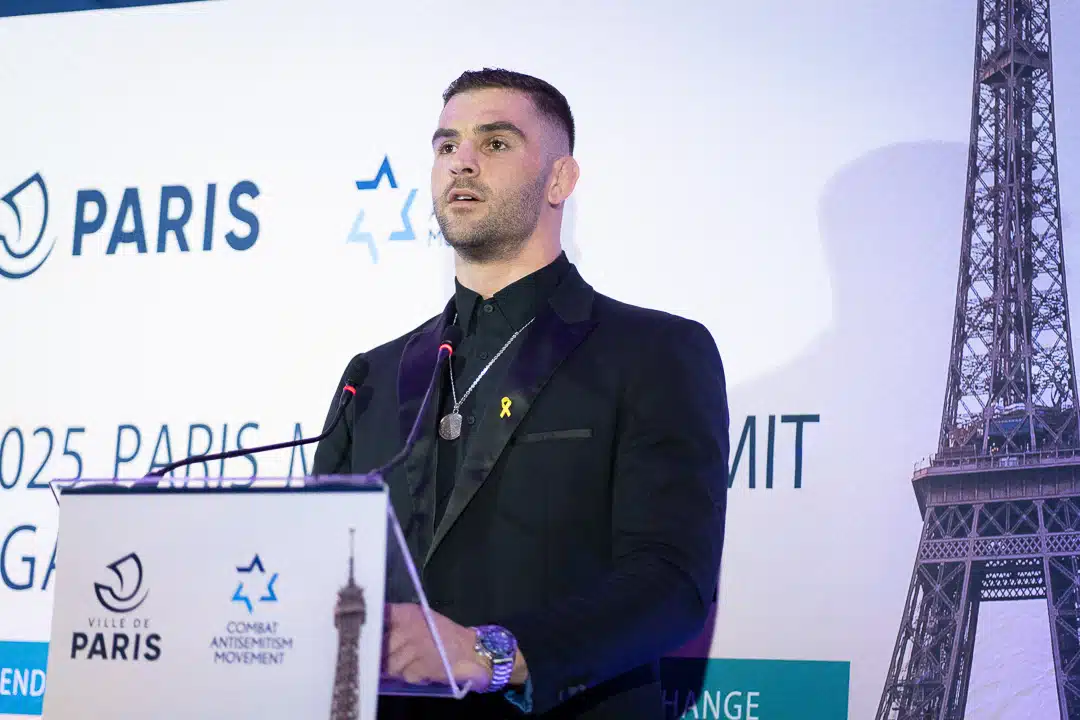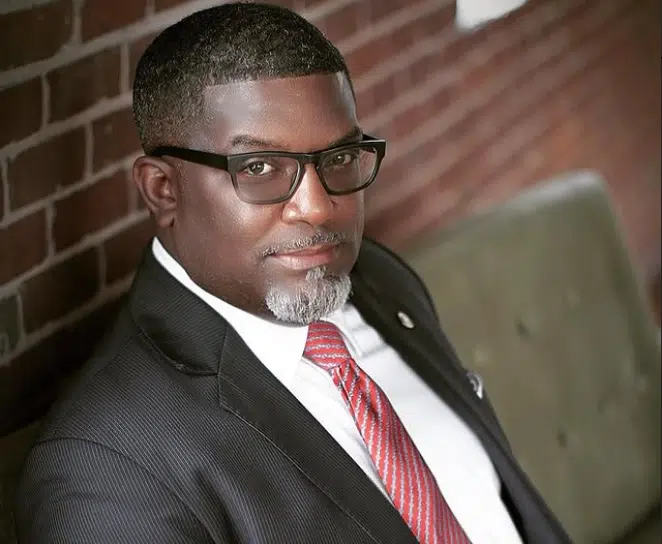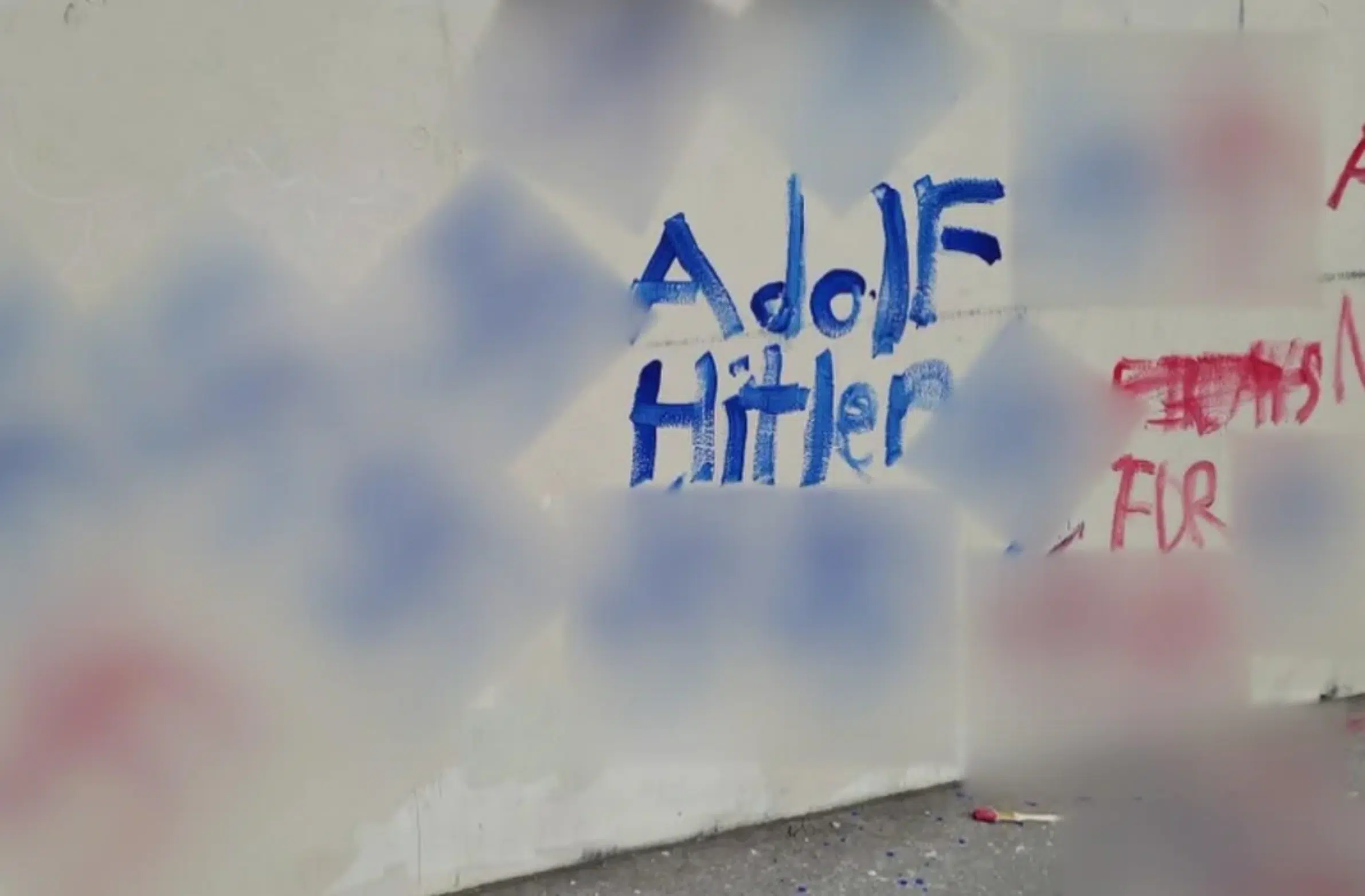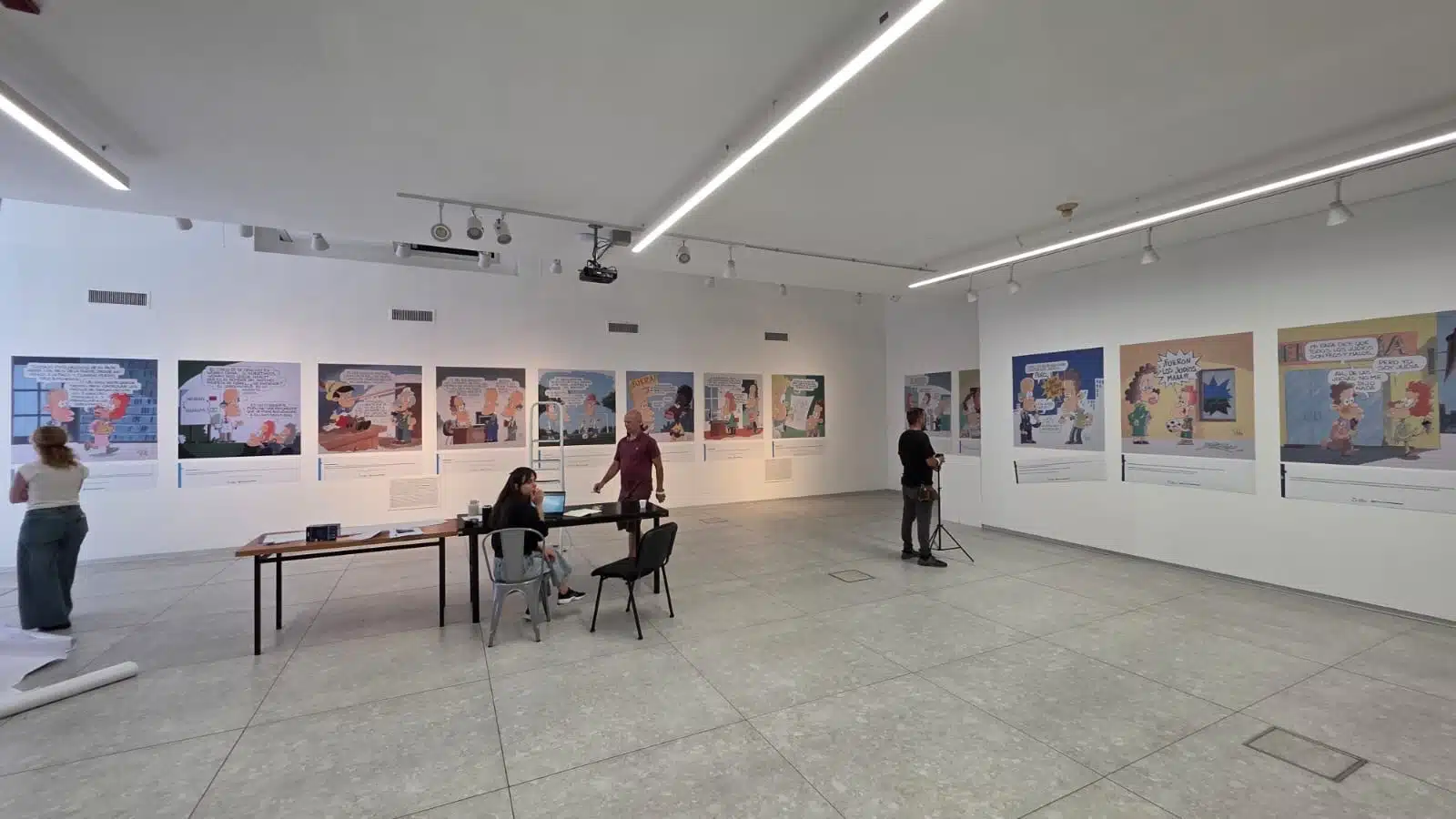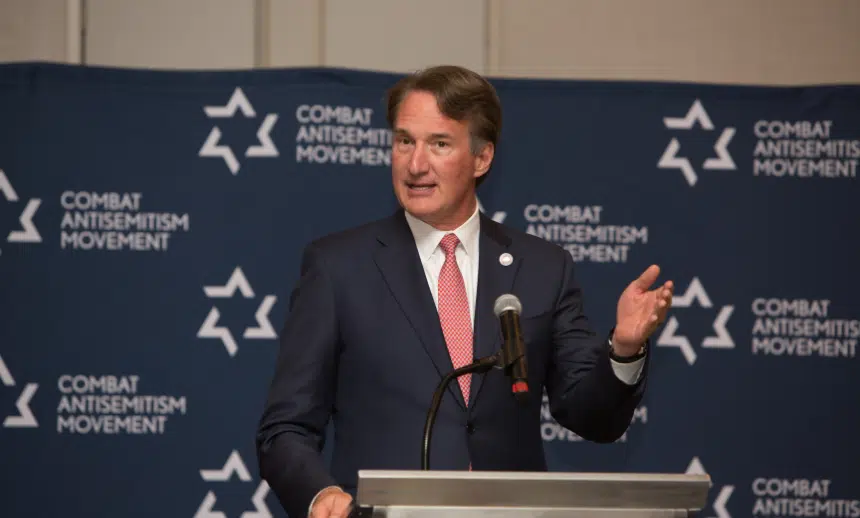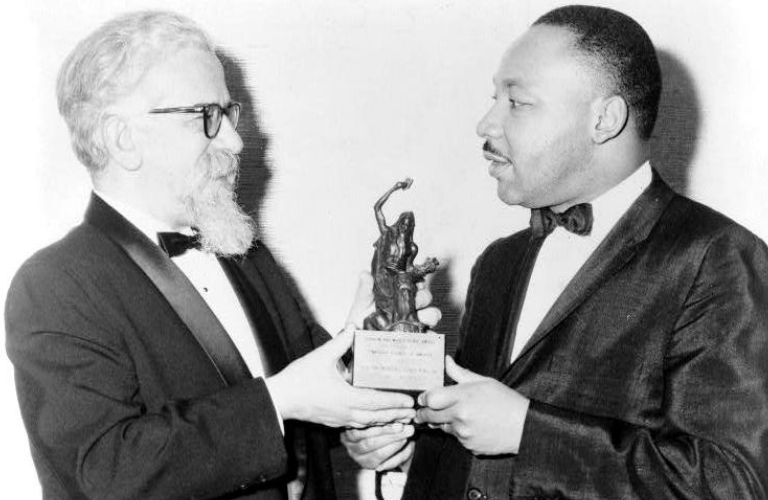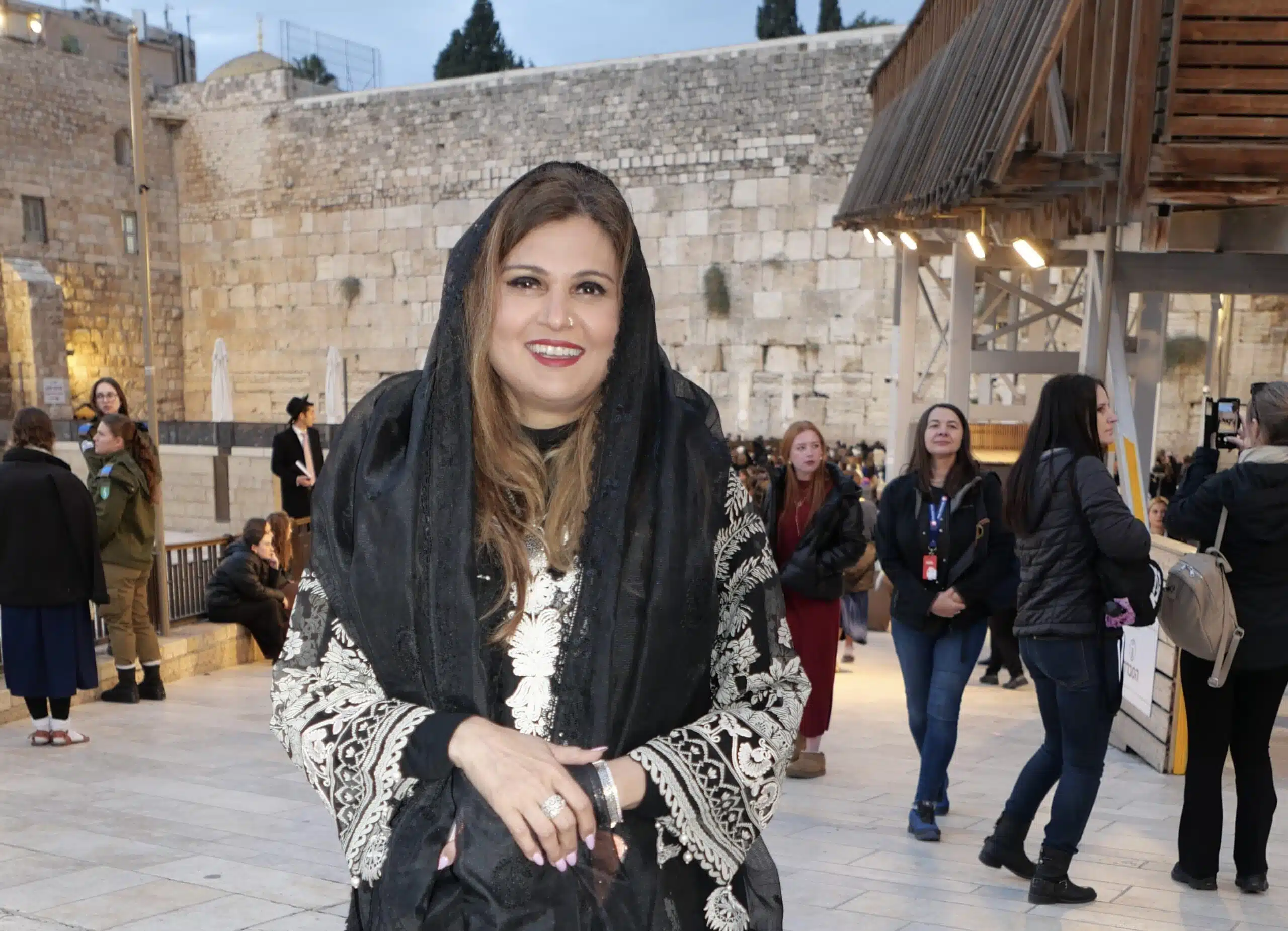

#JusticeforSarah: An In-Depth Look With French Antisemitism Expert Marc Knobel at the Halimi Murder Case
Sarah Halimi, a 65-year-old Jewish woman living in Paris, was brutally murdered by her neighbor in April 2017. The killer Kobil Traoré expressed antisemitic motives and engaged in an hour-long bloodbath. His behavior in the weeks preceding the murder provided clear evidence that it was premeditated. Nonetheless, France’s highest court ruled last month that Traoré will go unpunished because he smoked weed the same evening. French Jews are rightly expressing their outrage.
We partnered with French antisemitism expert Marc Knobel to release an in-depth educational guide to the Sarah Halimi murder case and the failures of France’s judicial system in advance of our upcoming virtual event with the Representative Council of French Jewish Institutions (CRIF). “Justice for Sarah Halimi: An International Movement Is Born” will bring together key leaders from around the world in the fight for justice for Sarah Halimi.
Knobel, director of research at the CRIF, goes into detail on the history, legal arguments, and broader significance of the Sarah Halimi case. He offers practical suggestions for how we can and should respond to antisemitism as a society. Ultimately, he concludes that France is not an antisemitic country. Read on to find out why.
A Grueling Account of Sarah Halimi’s Murder
Dr. Sarah Attal-Halimi lived in a popular, cosmopolitan part of town in Paris’s 11th arrondissement. This pious mom of three was a respected woman: a former doctor and the director of a kindergarten. At 4 o’clock in the morning on April 4th, 2017, something woke her as she lay sleeping. A man of Malian origin had just broken into her residence, after having climbed onto her neighbors’ balcony. The intruder was her own neighbor. Kobili Traoré, in the space of an hour, brutally killed Sarah Halimi. He only stopped to recite “surahs,” or chapters, from the Quran. Witnesses say they heard a male voice shouting “Allahu Akbar,” “I’m avenging my brother,” “You’re going to shut your mouth now (…) you’re going to pay,” “sheitan” (the Arabic word for “devil”).
A 27-year-old French national of Malian origin, Traoré was known to the authorities due to numerous incidents of theft and violence. He is a repeat offender who has been convicted 22 times for armed robbery and drug trafficking. It is thought he may have been radicalized while in prison, and he is also believed to have attended a Salafist mosque. The mosque in question is the Omar mosque (in Rue Jean-Pierre Timbault, Paris), known for cases of radicalization in 2014 and for the preaching of Salafist ideas. It was around this site, deemed to be radical, that individuals suspected of having travelled to areas on the border between Pakistan and Afghanistan met, crossed paths, and were put in contact with one another.
After his arrest, Kobili Traoré was imprisoned due to apparently being mentally unstable — he was speaking incoherently. During a police interrogation on July 10th, 2017, Traoré indicated that he had become aware that his victim was Jewish when he entered her property via the window and discovered a menorah lampstand. Even though he clarified during this same interrogation that he had known Sarah Halimi was Jewish, he denies having committed an antisemitic act. “It could have been anyone that happened to be on the wrong end of it,” he states. Paul Bensussan, an expert psychiatrist, explains that it was while fleeing via the neighbors’ balcony, “when he believed he was being pursued by ‘demons’, that he broke into the apartment of Mrs Halimi and the fatal incident occurred (…) in the grip of his delirium, both aggressive and terrified, Mr Traoré was a powder keg at the time the events took place. Mrs. Halimi’s Jewishness, however — the sight of the seven-pronged lampstand (in her apartment) — was the spark.
At the time, with a French presidential election around the corner, the dramatic incident was seen as just another bizarre news story. The general public lost interest in the case and the press barely mentioned it. The Jewish community, in stark contrast, sprang into action. French Jews feel worn down and exhausted by the rise in antisemitism since 2000 and the increase in antisemitic acts. It was then that a support committee came into being; it asked for the “truth” to be told and for “justice” to be secured for Sarah Halimi. It demanded that the aggravating circumstance of antisemitism be kept on the charge sheet.
The Disturbing Legal Aftermath
Three psychiatric examinations of Kobil Traoré took place (in September 2017, July 2018, and March 2019) and seven experts were asked to give their opinion regarding the case. Generally speaking, they were more or less in agreement as to the diagnosis.
- Three psychiatric assessments, performed during the investigation, agree in saying that the murderer, who has no past history of psychiatric problems, does not suffer from a mental illness but that he carried out his actions during an intense “bouffée délirante” (bout of madness) caused by frenzied consumption of a large amount of cannabis.
- The assessments diverge, however, on the issue of whether the suspect’s mental faculties were removed altogether or merely altered. These differences of view are very significant when it comes to how the case is dealt with by the courts.
- According to Daniel Zagury, a respected court expert, his mental faculties were not “taken away” but “altered,” due to his “conscious and voluntary” drug-taking. That said, this psychiatrist rules out any terrorist dimension to his decision to commit the act.
Thus, the polemics around the Halimi case do indeed stem from a contradiction in the psychiatric assessments.
Let us now examine what the situation was as regards the legal repercussions of this case.
In September 2018, upon seeing the report on the suspect’s psychiatric assessment, the public prosecutor’s department in Paris asked the investigating judge to keep antisemitism as an aspect of the murder on the charge sheet. On June 17th, 2019, the Paris public prosecutor’s department asked for Kobili Traoré to be referred to the Cour d’assises (the criminal court) for murder with an antisemitic element. In France, the Cour d’assises is a jurisdiction with responsibility for a particular département (or region), with jurisdiction to judge those accused of having committed a crime. In July 2019, however, the investigating judges responsible for the investigation concluded that there were “plausible reasons” for concluding that Traoré “bore no criminal liability.” Today, numerous lawyers take the view that a mistake was made by the investigation chamber. It ought to have delivered justice by opening the door on the trial. And this was not the case.
On December 19th, 2019, after a public discussion, the Paris Court of Appeal concluded that the culprit’s guilt should be recognized but that he could not be held criminally liable. Given that Kobili Traoré was not of sound mind within the meaning of article 122-1 of the French Criminal Code, he could not stand trial for this crime. The Court ordered him to be hospitalized, in conjunction with security measures, for 20 years.
On April 14th, 2021, after having a claim brought to it by civil parties (Sarah Halimi’s family), the Court of Cassation — the highest jurisdiction in the French judicial system — upheld the decision of the Court of Appeal. It was once again declared that Traoré could not be held criminally liable because he was apparently not of sound mind at the time of the incident. He will not stand trial for this crime committed in the midst of a “bout of madness,” caused by strong and frequent consumption of cannabis. Kobili Traoré will therefore remain hospitalized, in a psychiatric ward.
In making this decision, however, the Court of Cassation attracted strong criticism, both in the Jewish community and far beyond it. The Court of Cassation’s ruling immediately provoked an intense debate, and important discussions about the links between psychiatric illnesses resulting from drug-taking, and criminal responsibility. Faced with this steady stream of criticism, one of the most senior French magistrates, François Molins, broke his silence — something we seldom see. On Saturday April 24th, he vehemently rejected the accusations of “laxness” that were being made against the justice system. He said, “The purpose of the rule of law is to avoid arbitrary outcomes. This requires that an offence be prescribed by the law before the act is committed, just as with the sentence that may apply. The same goes for the conditions of criminal liability. This principle has constitutional value. Today, article 122-1 of the criminal code sets out a clear principle: any person whose mental discernment is taken away at the time the act is committed cannot be held criminally liable, irrespective of the reason for the removal of their discernment.”
How French Society Reacted
What you should understand is that this was an extremely sensitive case. The level of emotion it provoked in France was very high. There were a great many reactions to the case among the political class (politicians, members of parliament, senators etc.), with the exception — if I’m not mistaken — of the far left. These responses showed indignation, condemnation, and questions being asked about how the laws that allowed Traore to go free were constituted.
At the very highest level of the state, the President of France Emmanuel Macron, reacted: “Deciding to take drugs and thereby becoming “quasi-insane” ought not, in my eyes, to take away your criminal responsibility. […] There again, there must be no false impunity.” Following on from this statement, the most prominent government ministers proceeded to express their views, one by one. And the Keeper of the Privy Seals, Eric Dupond-Moretti, announced that a draft bill would be brought before the Council of Ministers at the end of May, aimed at “plugging” a “legal loophole,” after the Court of Cassation’s ruling. “This tragic story that has had an impact on all of us is going to make our legal system move forward”, the minister tweeted.
The French Public Has Other Priorities
It is entirely legitimate and normal for French Jews to be expressing emotion about this. The Jewish institutions have sprung into action, and community leaders have expressed their views, often in forthright terms. French Jews are experiencing this case, and the decisions that have been made, as a denial of justice, an absence of justice. The president of the Representative Council of French Jewish Institutions (CRIF) wanted to express this emotion. “Through this decision by the Court of Cassation, Sarah Halimi is dying for a second time,” Francis Kalifat said, “And that is something we cannot accept. We know that she was assassinated not because she just happened to be in her killer’s path, or because she had money, but solely because she was a Jew. She was the victim of an antisemitic crime that was thought through, planned and executed in a barbaric and sordid Islamist ritual. The French justice system is having difficulty acknowledging and putting a name to this antisemitism. By confirming that the killer cannot be held criminally liable, the Court of Cassation is depriving Sarah Halimi’s family of the trial that is an indispensable part of the grieving process, but it is also depriving the whole of France of a trial of historic significance: that of antisemitism, which is still killing people today in France.”
Nonetheless, I wouldn’t want you to think French Jews were the only people who reacted. There were special reports, interviews, and lots of articles being published, particularly by intellectuals, commentators, and journalists. In just a few days, there was an avalanche of responses, tweets, and evidence of public indignation.
One must understand the broader French context too, though. The country is going through a period of great tension, topics are colliding with one another, and France faces numerous threats. For many people, this is just one issue among many others, or indeed it isn’t even an issue at all. At a local café (which is currently closed due to the pandemic), people express a very wide range of causes of concern: the pandemic, infections, the closure of businesses, unemployment, security threats, immigration. A survey was conducted (IFOP opinion poll) for the Journal du dimanche, on April 25th, 2021: it is health (85%), ahead of the fight against Covid-19 (80%) and schools (72%), that constitute the top-3 priority issues for the French public. Next come security and terrorism (72%), the fight against delinquency (70%), the fight against unemployment (68%), and the fight against poverty (62%). There is no shortage of issues to be concerned about, believe me, and I imagine the same thing applies in other countries.
The Decades-Long History of Inaction in the Face of French Antisemitism
You’re asking me why non-Jews are saying nothing about the antisemitism in France? Your question is a complex one.
In 2013, I published a work which reports, by year, everything that happened in terms of French antisemitism between 2000 and 2012. In France in the 2000s, hostility toward Jews was widespread among sections of the public who were living in so-called sensitive districts. The young people identified with the Palestinians, for whom they imagined themselves to be “getting revenge” when they picked on Jews. Some were motivated by such an implacable hatred of Jews, that they attacked Jewish targets (schools, religious sites, stores, private residences, etc.). In parallel to that, the Islamists were making underprivileged banlieues (low-income suburbs) their preferred place for disseminating their pseudo-theses. In the sermons they preached, or online, they presented a vision of Islam being under siege, threatened by Americans, Europeans, and the Jews. This conspiracist vision appealed to the young people regularly listening to and reading this propaganda, supposing that they could find in it an explanation for their sense of disorder, pain, and fear. In a twelve-day period (in mid-October 2000), 70 incidents of antisemitism occurred from Toulouse to Paris and from Lille to Rouen: antisemitic messages were written on walls, there were verbal assaults, and incendiary devices were thrown, in various places. Faced with what I described as an unprecedented incident, and one that was unbelievably serious, the reactions of the political class were just not up to scratch.
We would have to wait until May 27th, 2003 for Jacques Chirac, the president of France at the time, to make a bold speech, on the occasion of the 67th anniversary of the CRIF, and against the solemn backdrop of the Élysée Palace, in which he hammered home the following message: “Today, you are no longer on your own. France stands with you against antisemitism. For it is France that has been attacked on her soil. It is France that is insulted when a synagogue is set ablaze on her soil. It is France that is humiliated when, on her soil, a Jewish child is forced to change college to escape bullying, intimidation, and insults. The Republic owes the protection of the law to all its children. Antisemitism runs contrary to all of France’s values. It is intolerable. Antisemitic acts must be fought against tirelessly, and punished with the greatest severity […]. We will not let an apologia for crime and hatred go unchallenged. France is not an antisemitic country. ”
From that point onward, French Jews felt less alone that they had had since the year 2000. How many scrawled slogans and threats had there been, though? How many blows had been dealt, prior to that point? How many people had been injured? Things were to change thereafter. Awareness about the issue took its course, and condemnations proliferated from the political class.
We are no longer in the year 2000, believe me. All the more so given that, since then, terrorist attacks have been perpetrated on our soil. There isn’t even space here for me to detail the reactions that this may have caused, the condemnations, the disarray, the sense of desolation. I will merely allow myself to refer to an interview I have already published with you on this subject.
In spite of everything, like me, you know that we won’t change the world and humanity. In France, as elsewhere, a lot of people are looking on as impotent bystanders — but all too often indifferent — to the disasters and tragedies that are unfolding on our doorsteps. That group don’t move a muscle, there is no outcry from them. That is how a portion of the world reacts.
Will Sarah Halimi Ever Receive Justice?
As I explained previously, Emmanuel Macron announced an amendment to the article on the lack of criminal responsibility in such cases. That certainly marks an important shift. Unfortunately, though, in France, this shift will not apply to Sarah Halimi.
On April 21st, however, two lawyers decided to bring a suit against Kobili Traoré to the Israeli courts, on behalf of the victim’s sister, an Israeli national residing in Israel, under the criminal law of this country, which states that Israeli law applies in cases where there is an attempt on the life of a Jew, committed abroad (articles 13 and 14 LP of the Israeli law). To explain their approach, the lawyers say that they deplore the fact that they were forced to initiate this proceeding, but they could not under any circumstances accept a denial of justice. As far as I am concerned, I think this is a French case that should be adjudicated upon, or discussed, in France. Moreover, I am concerned that this proceeding, as symbolic as it may be (in Israel), might create unhelpful confusion and incomprehension, with recurring accusations. In any case, even if a trial were to take place in Israel and Traoré were to be sentenced by the Israeli justice system, France would never extradite Kobili Traoré.
Can the World Learn From Antisemitism in France?
You know, these are complex issues. One has to demonstrate a certain humility in this field, both in France and everywhere else. If it was so obvious how these (complex) issues should be handled, if the solutions were so apparent, we wouldn’t be where we are now. Yet antisemitism is on the rise almost everywhere else. I’m not convinced that in the United States, the UK, Germany, Sweden, Canada, Switzerland, Argentina, etc., we’re getting such clear results that antisemitism in these countries might be able to disappear as if by magic. Antisemitism is a threat to the United States too, is it not? Is it not rife on American college campuses? Have attacks not taken place? Have Jews not been subjected to violence and harassment in areas such as Brooklyn, for instance? Not to mention the virulence of anti-Zionism, when it is harbored by the radical left, in the United States. France therefore has no monopoly on antisemitism.
However, I refute the unfounded accusations that are being made against my country, in that regard. Mistakes have been made, but France is not an antisemitic country (no more than the US or the UK are). Alas, there’s an antisemitism in France that is growing, and there are antisemitisms with multiple configurations and complexes which know how to make a weapon of it, manipulate it, make use of it, and develop it. The threat is real, and antisemitism is a cancer that knows how to regenerate itself in France and elsewhere. It is creative, it surprises us, and continually causes us anxiety.
What Actions Can We Take Against Antisemitism as a Society?
We must therefore try to adapt and improve, just like everywhere else, the measures that have been put in place. It is thus a matter of developing the practices that ought to be put in place in order to tackle antisemitism.
Let’s take universities as an example. Shouldn’t we be developing training sessions for teachers and members of staff, and awareness campaigns for the students? Shouldn’t we be appointing, at all the educational establishments, suitable role-models, so that we can increase contact with the students, and the staff, and enable greater responsiveness around these issues?
Take another example, in the grade schools this time. Shouldn’t we be offering, and bringing up to date, the necessary teaching tools for teachers? Working on agreements with the institutions and associations that are dedicated to tackling this issue? Teaching the history of the Jews since the birth of Judaism, and the history of the Diaspora? Teaching the history of antisemitism from antiquity to the present day: the historical origins, the specific aspects, whether contemporary or otherwise, that distinguish it from the other types of racism? Spending more time teaching the history of genocides and crimes against humanity, so as to reveal its ideological or psychological origins?
Another example: Shouldn’t we systematically distribute up-to-date awareness modules or guides to the struggle against racism and antisemitism, intended for all those working in the public sector? Compiling a common pool of knowledge and awareness, to symbolize that the government is setting an example in this field? Making the battle against antisemitism and discrimination a real aspect of the professionalization of the public sector?
You see, there is no shortage of examples. I’m going to stop there. I would like to believe that, even when the situations are difficult, it may still be possible to resist antisemitism, to oppose it, to fight it head-on, without lowering our guard, and without letting our heads drop; to persevere and to improve the existing measures, in France, and everywhere else. Know this: in other countries, while you may have had to learn from our mistakes, there are also lessons you could learn from our combativeness. We know how to fight for a cause.
Marc Knobel is director of research at the CRIF and a former researcher at the Simon Wiesenthal Center. He was also Vice President of the International League Against Racism and Antisemitism. An expert in antisemitism, terrorism, and extreme right-wing movements, he has published numerous books and articles. As a specialist of the issue of extremism on the internet, he advised the Council of Europe, the French Parliament, and the United Nations. He has given lectures at the National School for Judges in Paris (Ecole Nationale de la Magistrature de Paris) and has been a rapporteur for the Consultative Commission on Human Rights (Commission Nationale Consultative des Droits de l’Homme) since 2004.
Knobel was engaged in judicial procedures involving extremist internet sites. In 2000 and 2001, he initiated a legal procedure against Yahoo! in order to stop the sale of Nazi and neo-Nazi memorabilia.

